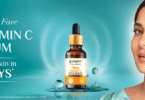Skin issues are frequent among new mothers who are breastfeeding. It can also be inconvenient and annoying. A new mother’s body changes continuously after giving birth. Hormone imbalances, stress, and lack of sleep all contribute to a variety of changes during the postpartum period.
Whenever it comes to skin health and beauty, this is particularly true. There are various qualities you seek when cautiously picking your skincare products, such as brightening, smoothing, moisturizing, and exfoliating. If you’re pregnant or breastfeeding, though, you must consider another factor: whether ingredients are suitable for your baby’s development. When it comes to breast milk, the body is very particular about what gets into it. Everything you put in or on your body has an impact on your baby when you’re breastfeeding. Pregnancy and breastfeeding, on the other hand, necessitate additional precautions.
Melasma, Eczema, Acne, and Bacterial Infections are the most frequent skin issues that moms may face. After pregnancy, oestrogen levels rise and stay high for a long period, which might contribute to melasma. Melasma is a condition in which dark patches of skin appear on the skin. It’s known as the “mask of pregnancy” because it usually affects pregnant women, but it can also occur after a baby is born. In Eczema, several new mothers obtain eczema around their nipples during breastfeeding. If you really have eczema, you may find that your skin is rough, itchy, or excessively dry. Hormone imbalances after childbirth might cause or aggravate acne. Tension, sleep loss, and dehydration are all factors that can contribute to acne during the postpartum period. While breastfeeding, bacterial infections surrounding the nipple might occur. The following symptoms may appear if you get a bacterial infection: redness, swelling, discomfort, fever, and flu-like symptoms.
If you’re unsure about what you can apply to your skin while breastfeeding, read this article completely.
Benefits Of Breastfeeding
Breastfeeding provides great advantages for the baby as well as for the mom. So, let’s talk about the advantages of nursing.

For The Mom
- To create and sustain a milk supply, it burns additional calories per day after birth, resulting in rapid weight loss.
- Anemia is less likely to occur.
- The uterus is stimulated to shrink and return to its original size.
- Breastfeeding also lowers your risk of getting breast or ovarian cancer. This may also help you avoid osteoporosis.
- Urinary tract infections are less common.
- Anemia risk is reduced.
For The Baby
- Colds and respiratory infections such as pneumonia, RSV, and whooping cough are less common.
- Diarrhea, constipation, gastroenteritis, gastroesophageal reflux, and preterm necrotizing enterocolitis (NEC) are among the less common symptoms.
- Fewer illnesses and hospitalizations are occurring.
- Infant mortality levels are lower.
- Antibodies in breast milk aid in the fight against viruses and bacteria in your baby.
- There are fewer ear infections, particularly those that cause hearing loss.
Skin Care Tips When Breastfeeding
There are some other ingredients that some pals say are safe while breastfeeding which include lactic acid, vitamin E, Shea butter, etc.
Some of the skincare tips that are much needed to care while nursing are as follows:
Keep Your Skin Clean
Regular cleaning is one of the most crucial tasks to include in your postpartum skincare routine, for anything from unclogging pores to overall skin upkeep. Use a gentle cleanser to remove dirt, germs, and other possible irritants from the skin. Make sure all residue from your skincare products is removed before feeding your baby. Before and after breastfeeding, ensure to clean the nipples thoroughly.
Moisturize
When you prioritize moisturization during the postpartum period, you can lessen the intensity of a number of skin problems. We also advise staying away from alcohol-based hand sanitizers. Despite its convenience, the high content of alcohol in these products will cause your skin to react negatively. Eczema might also benefit from regular moisturizing. Many moisturizers contain an emollient, which helps with dryness, flakiness, and irritation. While breastfeeding, you’ll probably find yourself doing a lot of handwashing and hand sanitizer, and repeated washing without moisturizing can leave your hands dry, red, and cracked. Use a rich moisturizer at night to combat the dryness.
Make Use Of Vitamin C
Vitamin C has been demonstrated to be extremely beneficial in the treatment of melasma. Melasma is a kind of hyperpigmentation caused by hormonal fluctuations in the body. Vitamin C is a naturally occurring substance that brightens the skin and, with prolonged use, evens out the tone. Using a vitamin C serum to your skin after cleansing once or twice a day will help you reap these benefits. It is a potent antioxidant that can better preserve the skin from damage caused by the environment.
Keep Yourself Hydrated
Your skin can be moisturized by creams but from the inside out of your body, you can also hydrate your skin by drinking enough water. Check to see if you’re getting enough water each day. Your skin may be more susceptible to dryness and cracks if you’re not drinking an adequate amount of water. To boost your hydration, remember that you don’t have to drink only simple water. Juices, teas, soups, and broths are all good ways to stay hydrated. hydrated.
What To Avoid While Breastfeeding?
You should always consult your dermatologist before purchasing skin care products from a store. Several products contain chemicals that can then be passed on to your baby through breast milk or cause irritation in your baby. When picking skincare products during breastfeeding, keep in mind that your baby’s skin is sensitive. Certain products should not be used while nursing and some of them are given below.

Retinoids
In anti-aging products, retinoids are among the most powerful components. Retinoids are often utilized in anti-aging products because they help the body produce more vitamin A. Retinoids and retinol are vitamin A compounds that come in a variety of retinoic acid concentrations. Retinoids can cause rashes and skin irritation in newborns and can be dangerous to them. If anything gets on your skin, it’s likely to get on your baby’s too though. Retinoids are ingredients that need to be avoided in skincare during breastfeeding.
Parabens
Parabens, which are commonly found in skincare and cosmetics, have been related to lower fertility, hormone disruption, and breast cancer. They have been also connected to endocrine disruption and possible hormone abnormalities in certain studies. They can irritate delicate skin in people of all ages, therefore the use of parabens recommends avoiding them entirely.
Chemical Sunscreens
Sunscreens are generally safe, but choose an all-natural one that would not penetrate the skin if you want to be especially careful. Chemical sunscreens can produce an allergic reaction and interfere with the production of oestrogen and hormones. Oxybenzone, octinoxate, avobenzone, octisalate, and homosalate are examples of chemical sunscreens. Go for natural sunscreen instead of chemical sunscreens.
Salicylic Acid
At high levels, salicylic acid is extremely harmful to babies. Salicylic acid, a beta-hydroxy acid, is an effective acne treatment, particularly for removing blackheads and whiteheads. But we suggest avoiding salicylic acid during nursing because it remains on the skin for long durations and can be extremely concentrated.
Formaldehyde
Another popular preservative in beauty products is formaldehyde, and it’s a little more stealthy than parabens. Eyes, skin, throat, and lungs can all be irritated by it. It’s important to keep a watch out for them, though, because they can trigger major allergic reactions in nursing newborns. The chemical, which is found in various paints and hair-straightening treatments, has been linked to cancer and nervous system disorders. All women should avoid formaldehyde-containing items if at all possible.
Other Tips For Breastfeeding Moms
- Fruits and vegetables should be consumed in moderation. Take your vitamins and antioxidants in a natural way, which will help you maintain a healthy glow while also providing various other benefits for nursing mothers.
- Spraying perfume on your chest or wrists is not recommended because it may irritate the skin of your baby. Spray it on the back of your neck, behind your ears, or behind your knees instead.
- A well-balanced diet keeps your energy levels up, curbs your hunger, and improves the quality of your breast milk.
- Soaps, cleansers, and moisturizers that are mild on the skin are recommended. Make sure your skin isn’t irritating to your baby if you want to have skin-to-skin contact with him or her.
The Takeaway
Breast milk has a wide range of advantages for your baby as we discussed earlier. It is really necessary to make sure that you’re consuming adequate vitamins and nutrients to stay healthy, as well as feeding your child with the highest-quality breast milk possible.
There is an abundance of natural beauty products available on the market and not every product is suitable for breastfeeding moms. Before purchasing any products make sure to check the label of the ingredients that you will see when you turn the product’s bottle.
If you have a skin problem, seek an appointment with a dermatologist before choosing products, and let them know if you are breastfeeding.





